Phone:
(678) 951-0626
Physical address:
4575 Webb Bridge Rd.
Suite #4345
Alpharetta, Georgia 30023
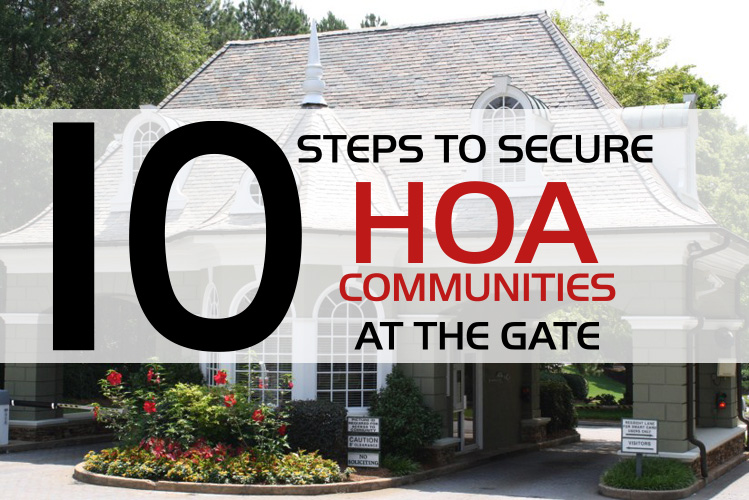
In today’s world, security is a major concern for homeowners’ association (HOA) communities. The entrance gate serves as the first line of defense, ensuring the safety and well-being of residents. Implementing robust security measures at the gate is essential to prevent unauthorized access and maintain a secure living environment. In this blog post, we will discuss ten steps that HOA communities can take to enhance security at the gate.
Invest in a high-quality gate system that is sturdy and automated. Automated gates allow residents to enter and exit easily, deterring unauthorized individuals from gaining access. Consider options like sliding gates, swing gates, or barrier arm gates, depending on your community’s specific needs.
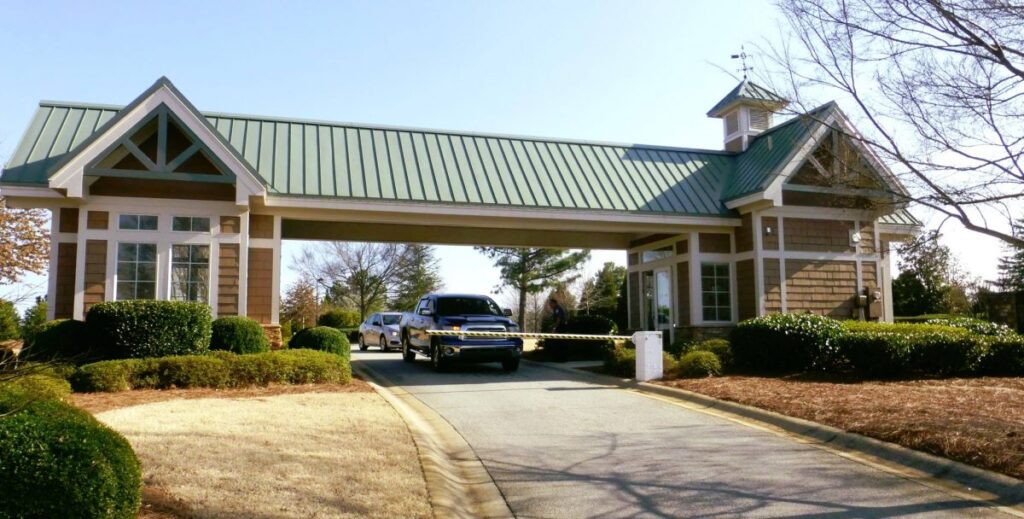
Implement an access control system that requires residents and authorized personnel to use RFIDS, keycards, key fobs, or personal identification numbers (PINs) to enter the community, pool, and athletic club. This way, you can ensure that only approved individuals can access the premises.
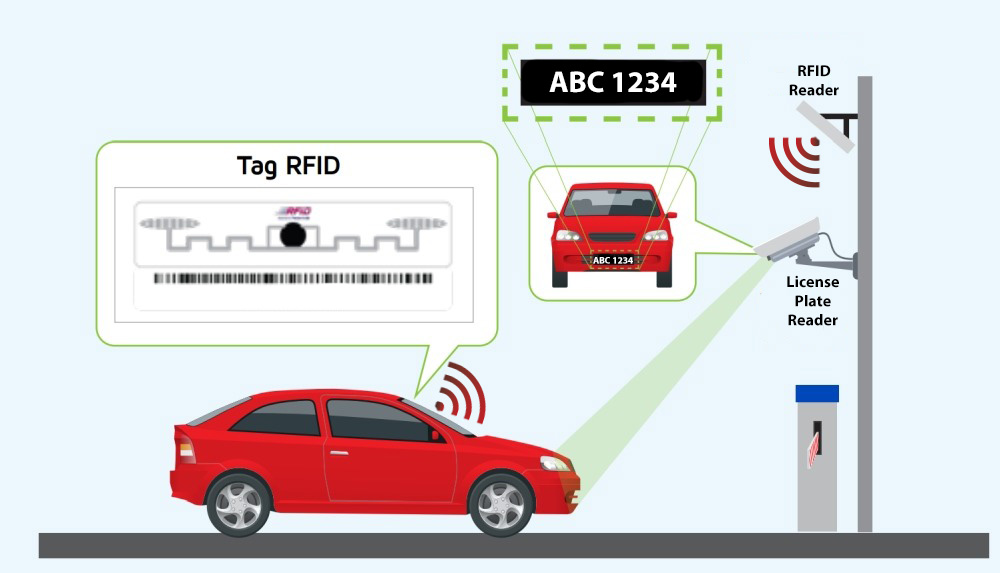
Strategically place surveillance cameras and License Plate Readers(LPR) at the entrance and exit gate to monitor and record all activities. Visible cameras act as a deterrent to potential wrongdoers and can provide valuable evidence in case of an incident.
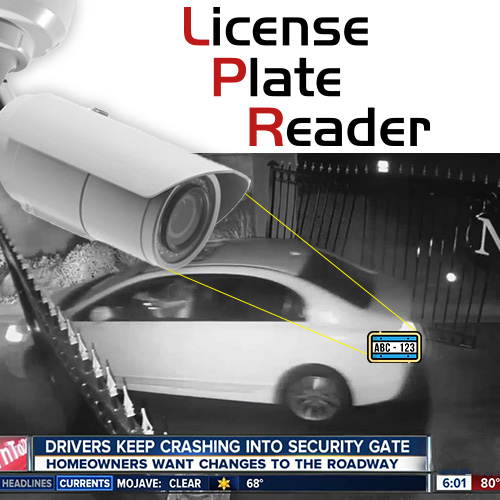
A call box system acts as an intercom between visitors and residents. Modern call boxes now implement advanced technology such as self-service kiosk with touch screens. Ensure you invest in a robust, weather-resistant box with features like two-way audio, digital keypad entry, directory search, scanner for QR and visitor e-passes, remote guard services, and camera integration. This allows residents to verify visitors before granting them access or scheduling visitors in advance to allow entry with a visitor e-pass. An example of a modern call box that covers all the above is TEKWave’s Allbox.
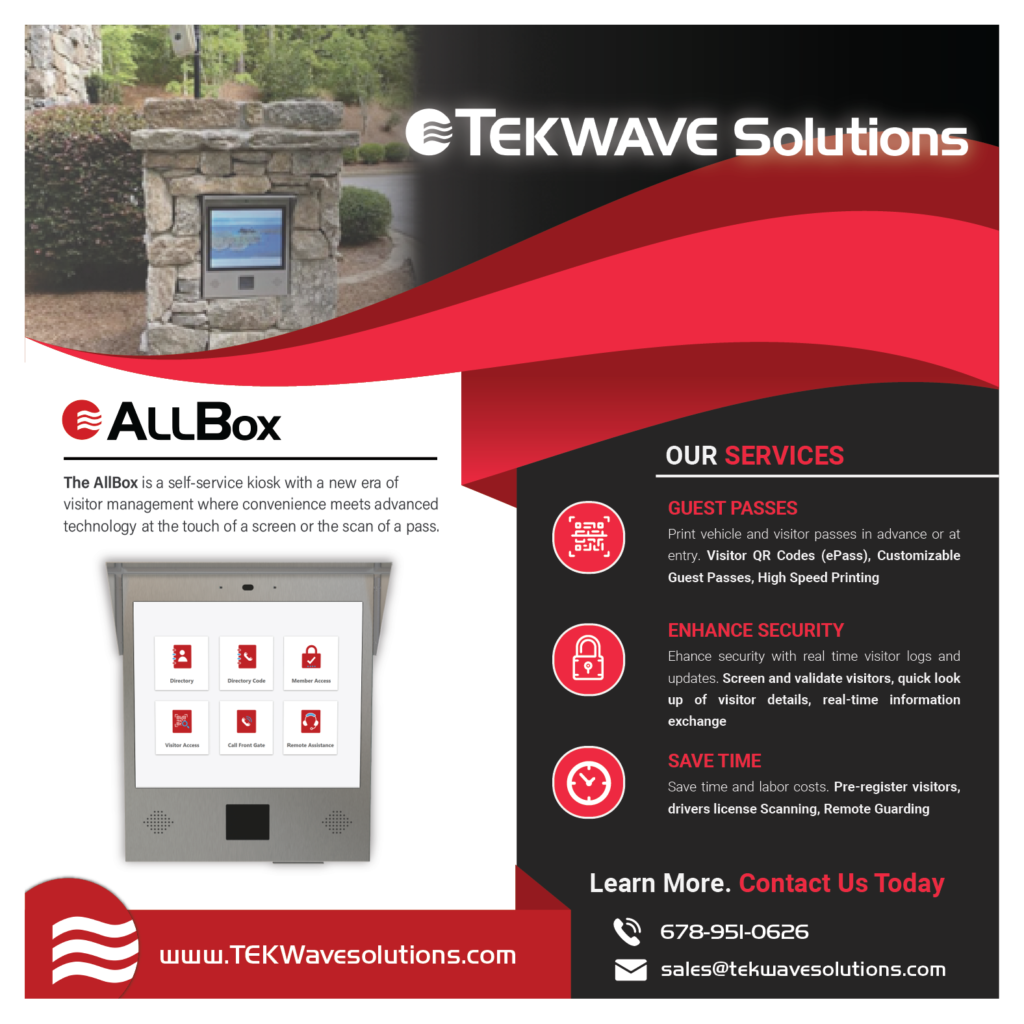
Modern Call Box, ALLBOX, by Tekwave Solutions
Hire trained security personnel to manage the gate and monitor incoming and outgoing traffic. Security guards can conduct routine checks, verify identification, and respond to any security threats promptly. Consider Remote Guarding self-service included in modern call boxes. Remote Guarding will not only lower labor costs but will allow the guard at the gate to conduct routine checks and respond to any security threats while the gate is still monitoring visitors, residents, and vendors.
Implement a visitor management system that requires visitors to provide identification and state the purpose of their visit. This helps keep track of who enters the community and enhances accountability. Maintain an up-to-date database of resident information, including contact details, authorized vehicles, and approved guests. This ensures efficient visitor management and enables quick verification of residents during security incidents or emergencies.
Ensure the area around the entrance gate is well-lit at all times. Sufficient lighting deters criminals and helps surveillance cameras capture clear footage, enhancing overall security.
Educate residents and gate staff on the proper use of the call box and visitor management systems. Conduct training sessions to familiarize them with system features, visitor registration processes, and security protocols. Regularly refresh this training to ensure everyone is well-prepared.
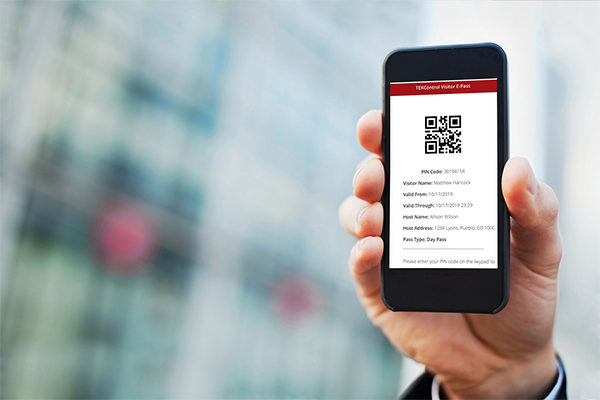
Visitor e-Pass (QR code) assigned to each specific visitor
Establish clear guidelines regarding visitor access and ensure residents are aware of these rules. Communicate visitor policies through newsletters, email updates, or community websites. Encourage residents to inform their guests about community rules to avoid any misunderstandings.
Establish a working relationship with local law enforcement agencies to improve security. Inform them about any security concerns, conduct joint drills or exercises, and seek their advice on enhancing community safety. Research emergency equipment to allow rapid access for emergency vehicles entering your community.
A secure gate is the first line of defense for an HOA community, and implementing these 10 steps can significantly enhance security. By investing in quality gate systems, access control, surveillance cameras, intercom systems, and security personnel, along with educating residents and collaborating with local law enforcement, you can create a safe and secure living environment for everyone in your HOA community. Remember, prioritizing security at the entrance gate sets the tone for overall community safety.
Contact us for a demo of TEKWave’s HOA Access Control System and how it can further benefit your community.